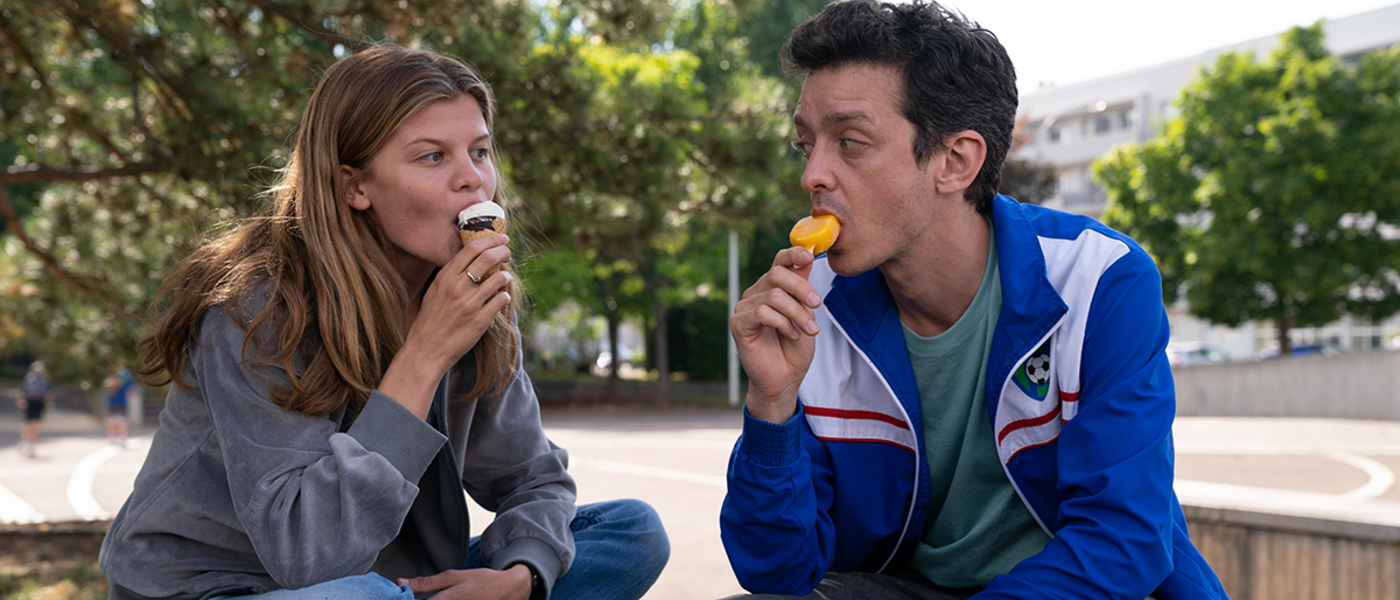About No love lost
by Frédéric Mercier

by Frédéric Mercier
It has been sixteen years since Valérie left, leaving Etienne on his own with their daughter Rosa. And she’s now about to leave the family home to study in another city when Etienne, by accident, finds signs of Valerie. Ever since he’s had to raise Rosa on his own, he hasn’t fussed over this trauma. Neither has Erwan Le Duc. Relentlessly reinventing himself, he’s found his very own tone to tell us about this separation between a father and a daughter as a diminutive epic poem.
Interview with Erwan Le Duc
“I take a lot of notes. They can be scenes, situations, images, and topics. And bit by bit, I gather it all and I try to mix them up. I realised that a character I had touched on in my first film The Bare Necessity popped up again: that of a single father raising his teenage daughter on his own. She wanted to go to a boarding school and was wondering how could leave him without abandoning him. I wanted to go further with this issue. I wanted to thoroughly explore the unconditional love between a parent and his child and to understand the hold they have on each other.”
“I didn’t want to turn that abandonment into a story where the protagonists fall apart. It is about a major change, rather. These are two happy people. Their experience didn’t ravage them. They never defined themselves against this absent mother, but rather had to become who they were in her absence. They may have been somewhat in denial and that’s what resurfaces as she comes back. But that’s not the core of the matter. Most importantly, I wanted to share the emotional tale of two people who manage to separate without wrecking everything. Or, if you will, to have a revolution without having to guillotine anyone.”
“I’m very interested in form. I need spontaneity, vitality, energy. The actors and the crew take risks in each and every scene. The actors are all very expressive and physical. we’re always trying out ideas. For the beginning, I had dreamt of an opening sequence where opera and adventure would coalesce, in which a lot would be told through images, moving bodies and gestures. I didn’t know how to go about it. We tried loads of things during editing until we stumbled on Julie Roué’s lyrical music, and she gave shape to the movement and made the idea I had in mind come true.”